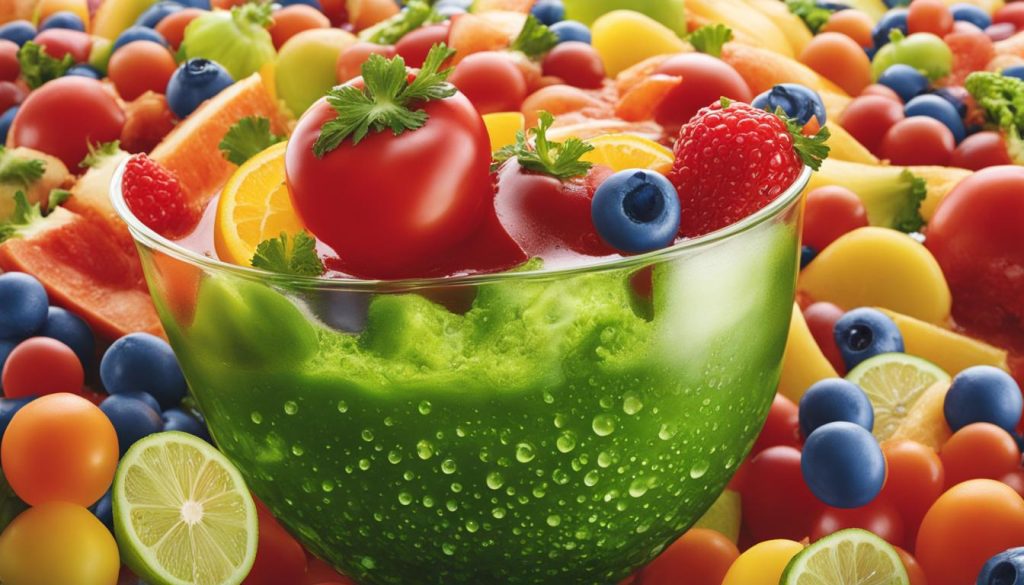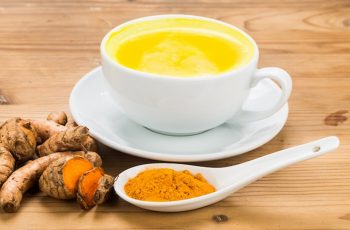Do you often experience that uncomfortable sensation of bloating after meals? You’re not alone. Bloating is a common digestive issue that can leave you feeling distended and uncomfortable.
In this article, I will explain the top reasons why you feel bloated and provide insights into the contributing factors that can make you feel bloated after eating.
Reasons Why You Feel Bloated
- Overeating can stretch your stomach and lead to bloating.
- Eating too quickly can result in swallowing air and hinder proper digestion, causing bloating.
- Gassy foods like beans, lentils, and carbonated beverages can contribute to excess gas and bloating.
- Food intolerances or sensitivities, such as lactose or gluten intolerance, can cause bloating and digestive discomfort.
- Fatty, fried, and greasy foods take longer to digest and can leave you feeling bloated and full.
If you experience regular bloating, it’s important to understand the underlying causes. By identifying the triggers and making subtle changes to your eating habits, you can find relief from bloating after meals. Let’s explore each contributing factor in more detail and discover effective ways to prevent or reduce bloating.
Overeating
When it comes to that extra slice of pizza or another serving of dessert, overeating may seem tempting. However, this indulgence often leads to uncomfortable bloating and digestive distress.
When I eat more than my body needs, my stomach stretches to accommodate the extra volume of food. This stretching puts pressure on my digestive system and can cause bloating and discomfort.
Not only does overeating stretch the stomach, but it also slows down the digestion process. This sluggish digestion can leave me feeling heavy and bloated for hours after a meal.
Additionally, overeating can increase gas production in the digestive tract. As my body works hard to break down the excess food, more gas is produced, leading to bloating and flatulence.
To avoid the discomfort of bloating from overeating, I remind myself to listen to my body’s cues of hunger and fullness. Taking the time to savor each bite and eating slowly can help me avoid overeating and prevent bloating.
Remember, it’s important to enjoy our meals in moderation and be mindful of our portion sizes. By practicing portion control and paying attention to our body’s signals, we can prevent the unpleasant bloating that comes with overeating.
Eating Too Quickly
Eating too quickly can have negative effects on your digestive system, leading to uncomfortable bloating symptoms. When you eat too quickly, you tend to swallow larger amounts of air, which accumulates in your stomach and contributes to bloating.
Additionally, rushing through meals inhibits proper digestion as your stomach doesn’t have enough time to break down the food efficiently.
Moreover, eating too quickly often leads to overeating. When you’re not giving your body enough time to register fullness, you’re more likely to consume larger portions, putting additional strain on your digestive system and exacerbating bloating.
To avoid the discomfort of bloating caused by eating too quickly, try to practice mindful eating. Take your time with each bite, chewing thoroughly, and savoring the flavors.
It can be helpful to put your utensils down between bites and engage in conversation or take a few deep breaths. This will encourage you to eat at a slower pace, giving your body ample time to digest properly.
Tips for Eating at a Slower Pace:
- Set aside dedicated time for meals, away from distractions like screens or work.
- Practice mindful eating by focusing on the taste, texture, and aroma of your food.
- Take smaller bites and chew each bite thoroughly.
- Put your utensils down between bites and engage in conversation or take a few deep breaths.
By adopting these mindful eating techniques, you can reduce the chances of bloating and promote better digestion.
Eating Gassy Foods
When it comes to bloating, certain foods can be major culprits. These gassy foods can cause excess gas production during digestion, leading to uncomfortable bloating and distension of the abdomen.
Some examples of gassy foods include:
- Beans
- Lentils
- Broccoli
- Cabbage
- Onions
- Carbonated beverages
Consuming these foods can result in the production of excess gas in the digestive tract, leading to bloating. To minimize bloating, it may be helpful to limit the consumption of these gassy foods.
If you frequently experience bloating after eating gassy foods, there are a few remedies that may provide relief. These include:
- Chewing food thoroughly: Taking the time to chew your food properly can help prevent swallowing excess air, which can contribute to bloating.
- Taking over-the-counter remedies: Certain over-the-counter medications, such as anti-gas tablets or simethicone, can help break down gas bubbles in the digestive tract and alleviate bloating symptoms.
- Trying natural remedies: Some natural remedies, like peppermint tea or ginger, have been found to have soothing effects on the digestive system and may help relieve bloating.
- Keeping a food diary: Identifying which specific gassy foods trigger bloating for you can help you avoid them in the future and manage your symptoms more effectively.
By being mindful of your consumption of gassy foods and incorporating these bloating remedies into your routine, you can take steps to reduce bloating and improve your digestive well-being.
Food Intolerances or Sensitivities
When it comes to bloating, food intolerances and sensitivities can be major culprits. If you have an intolerance or sensitivity to certain foods, consuming them can lead to bloating, gas, and other uncomfortable digestive symptoms. Two common examples are lactose intolerance and gluten sensitivity.

Lactose Intolerance: Lactose is a sugar found in dairy products. Individuals with lactose intolerance lack the enzyme lactase, which is needed to digest lactose. When lactose remains undigested in the intestines, it can ferment and produce gas, leading to bloating and discomfort.
Avoiding lactose-containing foods or opting for lactose-free alternatives can help relieve bloating caused by lactose intolerance.
Gluten Sensitivity or Celiac Disease: Gluten is a protein found in wheat, barley, and rye. Some individuals may experience digestive symptoms, including bloating, when they consume gluten. This can be a result of gluten sensitivity or a more severe autoimmune condition called celiac disease.
Following a gluten-free diet can provide relief from bloating for those with gluten-related issues.
If you suspect that certain foods are causing your bloating symptoms, consider keeping a food diary and working with a healthcare professional or registered dietitian to determine the triggers and make appropriate dietary changes.
Common symptoms of food intolerances or sensitivities:
- Abdominal bloating
- Gas
- Diarrhea
- Stomach cramps
Taking steps to avoid trigger foods can provide relief from bloating and improve your overall digestive health.
Eating Fatty, Fried, or Greasy Foods
Fatty foods are a common culprit when it comes to causing a bloated stomach. These foods take longer to digest, leading to a feeling of fullness and discomfort after eating.
When we consume foods high in fat, our bodies need to work harder to break them down. This prolonged digestion process can result in bloating and a sense of heaviness in the stomach.
In addition, fatty foods can also slow down the movement of the digestive tract, further contributing to bloating and discomfort. This can be particularly problematic for individuals with digestive disorders, such as irritable bowel syndrome (IBS).
If you frequently experience bloating after consuming fatty, fried, or greasy foods, it may be helpful to moderate your intake. Opt for lighter alternatives, such as lean proteins, fruits, and vegetables, which are easier for your body to process.
It’s important to note that not all fats are bad for you. Healthy fats, such as those found in avocados, nuts, and olive oil, are essential for a well-balanced diet. However, it’s still important to consume them in moderation to avoid feeling bloated.
Swallowing Air and Drinking Carbonated Drinks
One of the common reasons for bloating is swallowing air while eating or drinking. When you swallow air, it accumulates in your stomach and can lead to discomfort and bloating. Additionally, consuming carbonated drinks can also contribute to excess air in the stomach, further exacerbating bloating symptoms.
To avoid swallowing air, it’s important to take your time while eating and drink from a glass instead of using a straw. Eating slowly and mindfully can help reduce the amount of air you swallow, minimizing the chances of bloating.
Additionally, it’s a good idea to avoid carbonated drinks, as they can introduce even more air into your digestive system.
If you’re looking for natural remedies for bloating, there are a few options to consider. Drinking herbal teas, such as peppermint or ginger tea, can help soothe your digestive system and alleviate bloating. These teas have been used for centuries to aid in digestion and reduce bloating discomfort.

Conclusion
To prevent and relieve bloating, it is important to make simple changes to your eating habits and lifestyle. Eating smaller, more frequent meals can help prevent the stomach from stretching too much, reducing bloating.
Additionally, avoiding foods that are known to cause excessive gas production, such as beans, lentils, broccoli, and carbonated drinks, can also help alleviate symptoms of bloating.
Promoting healthy digestion is crucial in preventing bloating. Consuming fiber-rich foods like fruits, vegetables, and whole grains can aid in regular bowel movements and reduce the chances of bloating.
It is also recommended to stay hydrated and incorporate physical activity into your daily routine to keep your digestive system functioning optimally.
If bloating persists or is accompanied by other concerning symptoms, it is advisable to seek guidance from a healthcare professional for proper diagnosis and treatment. They can help identify any underlying conditions or food intolerances that may be contributing to your bloating and provide personalized recommendations for relief.
FAQ
Why do I feel bloated after meals?
Bloating after meals can be caused by various factors such as overeating, eating too quickly, consuming gassy foods, having food intolerances or sensitivities, eating fatty or greasy foods, and swallowing air or drinking carbonated drinks.
How does overeating contribute to bloating?
Overeating stretches the stomach, slows down digestion, and increases gas production in the digestive tract, leading to bloating and discomfort.
Why does eating too quickly cause bloating?
Eating too quickly can cause you to swallow air, which can lead to bloating. It also inhibits proper digestion and can result in overeating, exacerbating bloating.
Which foods can cause excess gas production and bloating?
Foods such as beans, lentils, broccoli, cabbage, onions, and carbonated beverages can cause excessive gas production during digestion, leading to bloating.
Can food intolerances or sensitivities cause bloating?
Yes, consuming foods that you have an intolerance or sensitivity to, such as lactose or gluten, can result in bloating, gas, and other digestive symptoms.
Do fatty, fried, or greasy foods contribute to bloating?
Yes, foods that are high in fat take longer to digest, causing a feeling of fullness and bloating after eating.
How does swallowing air or drinking carbonated drinks affect bloating?
Swallowing air while eating or drinking carbonated beverages introduces excess air into the stomach, leading to bloating and discomfort.
How can I prevent or reduce bloating?
You can prevent or reduce bloating by eating smaller, more frequent meals, avoiding gassy foods and carbonated drinks, and taking steps to promote healthy digestion. If bloating persists or is accompanied by other symptoms, it is recommended to consult a healthcare professional for an accurate diagnosis and treatment.




